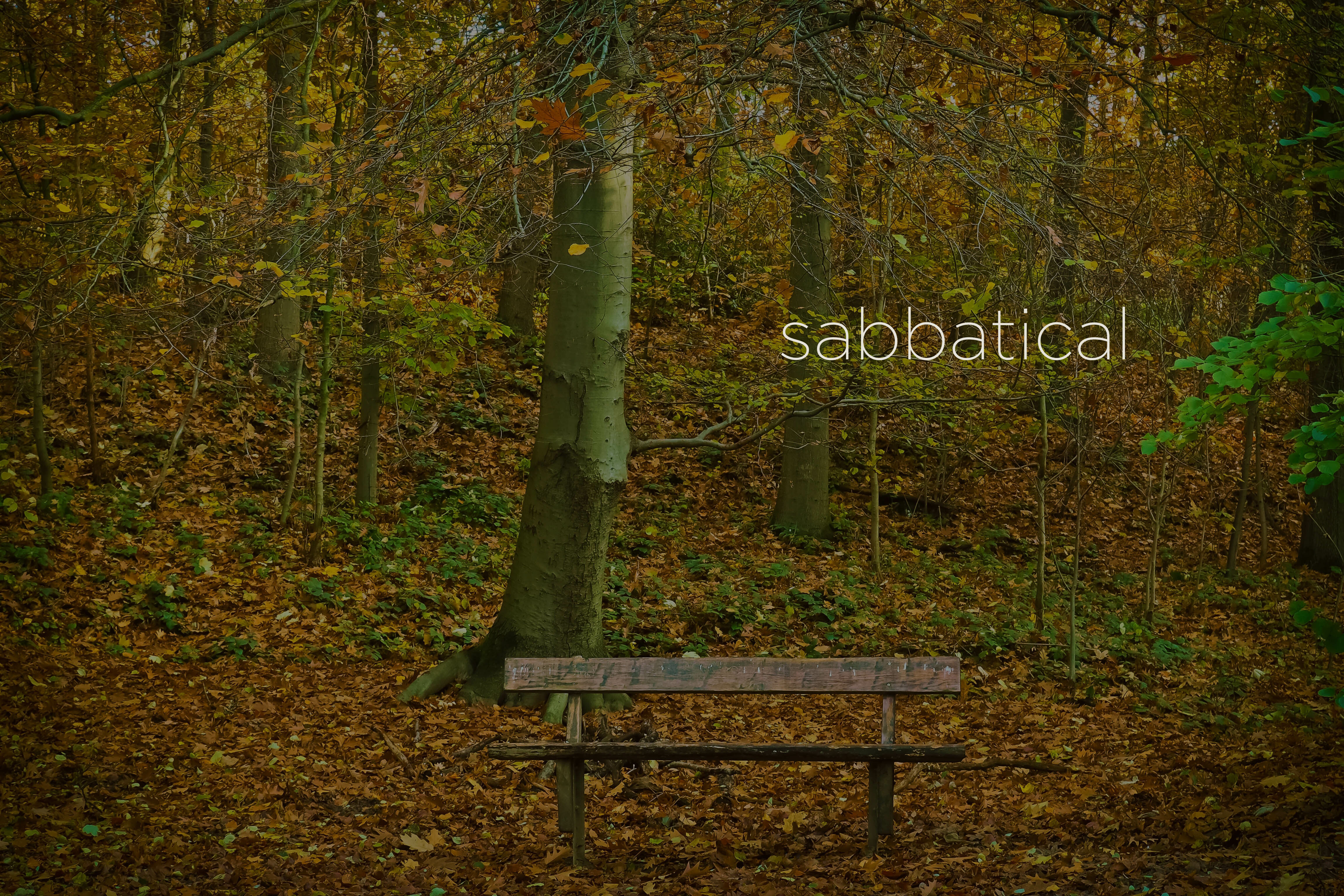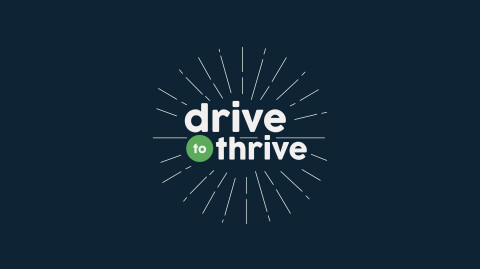Heads up: this is one of the longer posts on the blog. It will take you 10 minutes to read. Do you have 10 minutes right now? If not, bookmark this page and block out 10 minutes on your calendar so you can come back to this post when you have time. I promise it is important.
This summer I began my 13th year of full time ministry. Having completed five of those years at the Otter Creek Church, the eldership gifted me an incredible gift: time. I have recently returned from four weeks of sabbatical. Briefly, it was life-giving and will sustain my ministry for years to come.
Before I go any further, it’s important to address an elephant in the (virtual) room. Some people (this might include you) will already be thinking, “that must be nice, but my job doesn’t offer sabbaticals.” If that is your thought, you make a good point. The inability for everyone to reshape their day to day routine is not lost on me. This time away from my regular duties so I could engage in spiritual disciplines, do some big picture thinking, and recharge for future ministry was a beautiful gift, which I firmly believe continues to make me a better minister and ultimately benefits the church. But I know not everyone has the ability to take a sabbatical. Before you feel left out of the sabbatical experience and dismiss this article, hang with me. You might discover ways you can weave sabbatical into your life, even if your job won’t allow you to block out a chunk of time for full disengagement from your regular duties.
Let’s start thinking about sabbatical by discussing what sabbatical is not. Taking a sabbatical is not an extended vacation. Sabbatical isn’t about abandoning your coworkers and responsibilities to sit on the beach, nosing around the umbrella in your coconut drink. It isn’t about sleeping for 12 hours a day and using the remainder of your day to see if it’s possible to win Netflix (although sleep is an important component).
To the contrary, taking a sabbatical is a spiritual discipline, based on the ancient Jewish rhythm of recalibrating the body and soul periodically. In fact, the word, “sabbatical” is based on the Hebrew word, “sheva,” meaning, “seven.” Rooted in the creation narrative of Genesis, the Jews believe setting aside a seventh of the time you could be working to instead rest and examine how your life and work are progressing is important. Spoiler alert: they are right.
In my version of sabbatical I had several objectives. Some were related to connecting to creation. Some involved deep, big picture thought about areas of my ministry. Some were focused on my own spiritual health. And some were designed to achieve rest.
Here’s what I learned:
- Being in creation feeds my soul and draws me near to God.
- I need to improve at doing what is important instead of what is urgent.
- Occasionally unplugging from email and social media (and screens in general) improves my well-being and wards off depression.
- The world doesn’t stop spinning without my work.
Those lessons might be generalized into these four pillars of sabbatical:
- Proximity to God
- Recalibration
- Unplugging
- Humility
If I ever take another sabbatical like the one I just had, it won’t be for many years. But you can be sure that I will continue to focus on these four pillars regularly. They are life-giving and I have learned that I need these disciplines in my life.
If you don’t have the ability to step away from your work for a large chunk of time you can still build in a sabbatical for yourself by pursuing these four pillars. And while each of these pillars might look differently for different people, let’s talk about each briefly.
- Proximity to God
When do you feel closest to God?
When you walk in the woods? When you sit on the beach? When you’re on a mountain? When you’re with your family? You need to figure this out and then block out time on your calendar to do those things.
When I hike on the Cumberland Plateau the air in my lungs feels differently. It’s as if God is on the trail with me. The magnificence and reality of all of God’s creation compresses around me such that simply looking over the bluff and hearing the water rush below makes the epic saga of God’s story real to me.
And guess what? If I don’t block a Saturday on my calendar to do it, I can go months or years without that experience that gives me so much joy.
Pick a time to do what brings you into God’s presence, and do it. - Recalibration
This second pillar might have the most variety as it plays out in the lives of different people. For me, I need to periodically take a step back to examine the big picture.
How many more years do I have with my kids before they go off to college? What do I want to happen in that time? What is the state of my marriage? How can I continue to ensure my work is meaningful and fulfilling? Am I on track to achieve what I want to achieve this year and in this season of life? How can I be more healthy?
Another part of recalibration might be the physical recalibration of the body. I’m not typically a morning person but something surprising happened on my sabbatical. I started consistently waking up 10-15 minutes before my alarm went off in the morning. Every day. That has carried over as I have returned to my regular rhythm. I now go to sleep earlier and wake up earlier and my body appreciates that.
There may be other areas of life to recalibrate as well. In short, this part of the sabbatical experience is one that takes time to give intentional areas of life significant thought and then develop better habits that help you experience more abundant life. - Unplugging
Disconnecting from email, social media, digital entertainment, etc. is probably the most self-explanatory of these four pillars. You don’t have to leverage your calendar or spend chunks of time considering how to improve life. You simply have to have the discipline to stop looking at your screen of choice.
There are practical steps you can take. Delete your social media apps from your phone. Set up an automatic response message on your email. Literally unplug your router and/or pause your data plan.
You might have to start small with this. Designate four hours on a Saturday when you will fast from digital connections. Or, you might even take 30 minutes a day when you disengage.
Whatever you have to do to unplug, I can tell you taking a break from constant digital connection will help you to be fully present with people in your life and appreciate your relationships with fresh vigor. - Humility
Growing in your humility is tricky. In order to become more humble, it is important to first understand what true humility is. Humility is not a self-deprecating attitude. Humility is simply understanding and appreciating your place in the story of the world. You have a part to play - an important part. But it’s not your story. Your part to play is within the story of God.
You need to embrace occasional disciplines that remind you of this truth. It’s not your story. You are not the Messiah. The world doesn’t depend on you. It’s ok to rest. The world will be ok if you sit on the bench for a few minutes.
Surprisingly, growing in your own humility increases your self awareness and your ability to serve others. It’s ironic. Recognizing that your service to others isn’t as important as you might have thought leads to being able to serve others better. Sabbatical will help you be more humble.
My recent sabbatical was full of treasured experiences and sweet memories. But these are the four truths that are going to stay with me. And, more importantly, these are the things I can recapture on occasion when I need rest and recalibration. I hope you will find creative ways to sneak these pillars of sabbatical into the rhythm of your own life.



